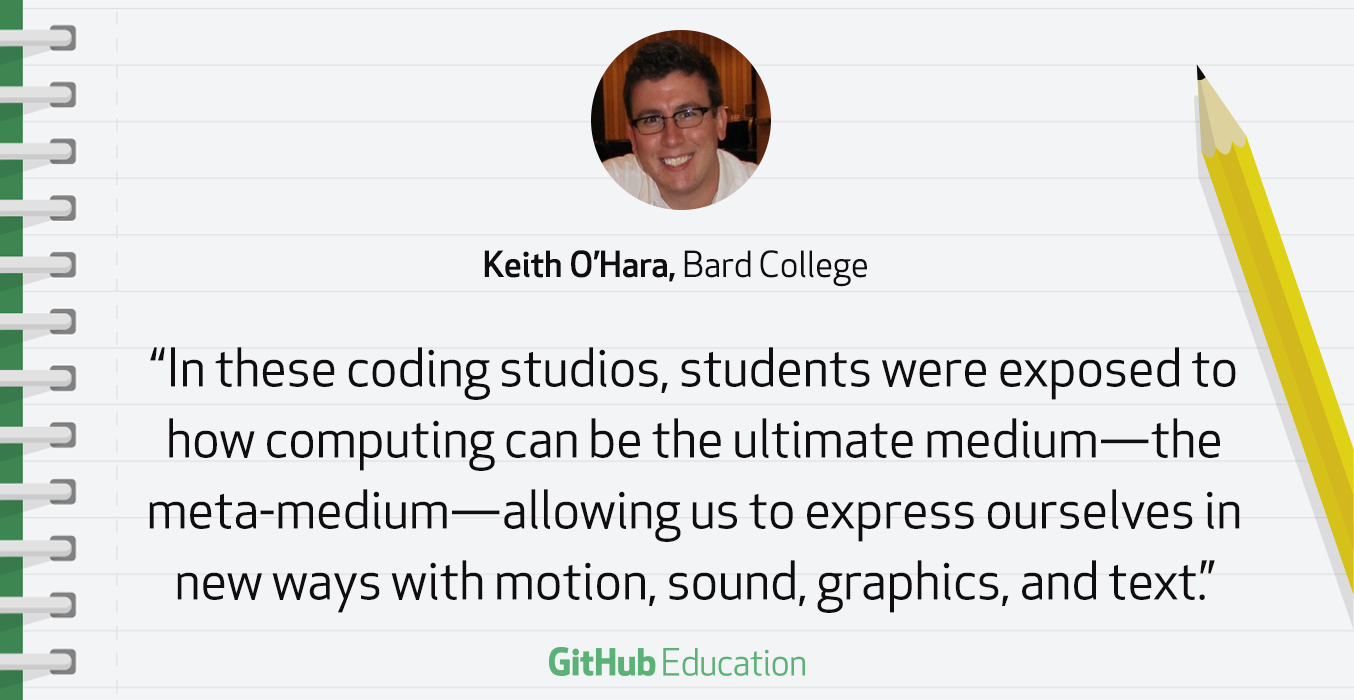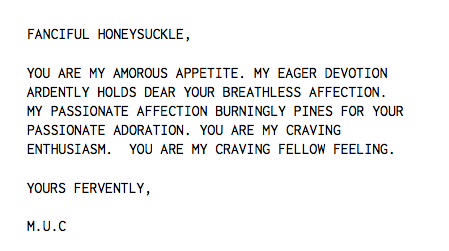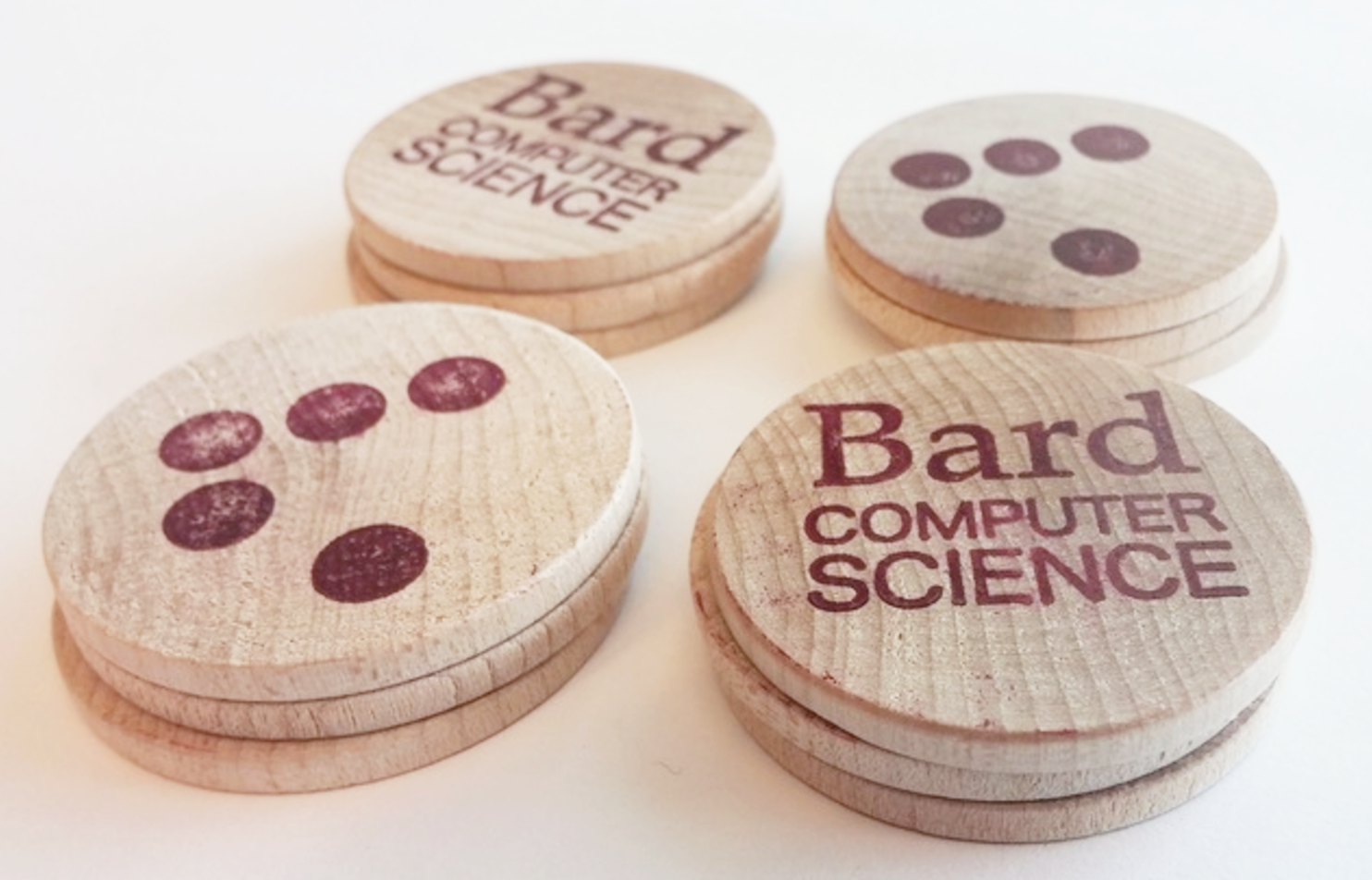Innovating in the liberal arts: code as language at Bard College
Bard College is not a technical research university. In fact, when students arrive on campus, most say they’ve had no experience with computer science. Professors Keith O’Hara and Sven Anderson…

Bard College is not a technical research university. In fact, when students arrive on campus, most say they’ve had no experience with computer science.
Professors Keith O’Hara and Sven Anderson aim to change this during students’ first week on campus. Every student starts their liberal arts experience with the Language and Thinking program in which O’Hara asks them to think, express ideas, and create an artifact with code.
Anderson and O’Hara’s novel pedagogy makes programming accessible and appealing to philosophy majors and poets. Here are three of their methods to try with your nontechnical students.
“The mathematician, like the poet, works only slightly removed from pure thought-stuff. He builds his museums in the atmosphere, from atmosphere, creating by toil of the imagination.”—Fred Brooks, mathematician
Learn by remixing, with your peers
Keith introduces his class to the world of code by using JS Bin to remix HTML pages. Then students build confidence by seeing the direct output of their changes as they work. First they change a link, then the stylesheet, then work up to adding their own graphics. In the first workshops, they also learn how to use GitHub to host media files from fellow students.
Code to express yourself
We can use code to speak to machines, to each other, and to the world around us. To prime students to think about these complex relationships, O’Hara points to the first chatterbot ELIZA, a parody of a psychotherapist as a human-machine communication system. Humans input their thoughts and feelings, the machine responds to their input, and the relationship blooms out of the design of the software.
In a second workshop, students write algorithms to generate poetry, make a robot sing and dance, or create virtual fish for a group fish tank.

In these workshops, Keith provides clear and functional code for students to customize and enhance.
In these coding studios, students were exposed to how computing can be the ultimate medium—the meta-medium—allowing us to express ourselves in new ways with motion, sound, graphics, and text.
Take it offline: manual link-building
In the first assignment, Keith asks students to collect and share URLs from a free-write. To help them understand how link structures work, he gives students balls of yarn. Then they toss yarn around the room to show connections between their sites.
Later, they exchange wooden nickels to explore the algorithm that powers Google Search, sharing their “money” with those the sites they link to and an instructor who further divvies up the pot.
The wooden nickels act as currency for power or authority; the exchange of these nickels simulated how power is distributed ad accumulated in the network.
Programming across the curriculum
What is the impact of these creative assignments? And why would Bard implement a computing element in their orientation?
Keith’s answer: to change attitudes towards computer science. To make significant strides in the diversity of computing, we need to connect computing to other disciplines, like art and biology.
First impressions are critical, and we expect that this brief exposure to computer science will have its most signicant impact on students when they make decisions about whether to engage computing in courses and employment opportunities. An increased familiarity with computing may allow them to entertain it as part of a viable pathway for their future.
- Fork Keith’s course on GitHub
- Read Professor O’Hara’s recent paper from ITiCSE
- Find more sample assignments in the GitHub Education community
Written by
Related posts

From pair to peer programmer: Our vision for agentic workflows in GitHub Copilot
AI agents in GitHub Copilot don’t just assist developers but actively solve problems through multi-step reasoning and execution. Here’s what that means.

GitHub Availability Report: May 2025
In May, we experienced three incidents that resulted in degraded performance across GitHub services.

GitHub Universe 2025: Here’s what’s in store at this year’s developer wonderland
Sharpen your skills, test out new tools, and connect with people who build like you.
